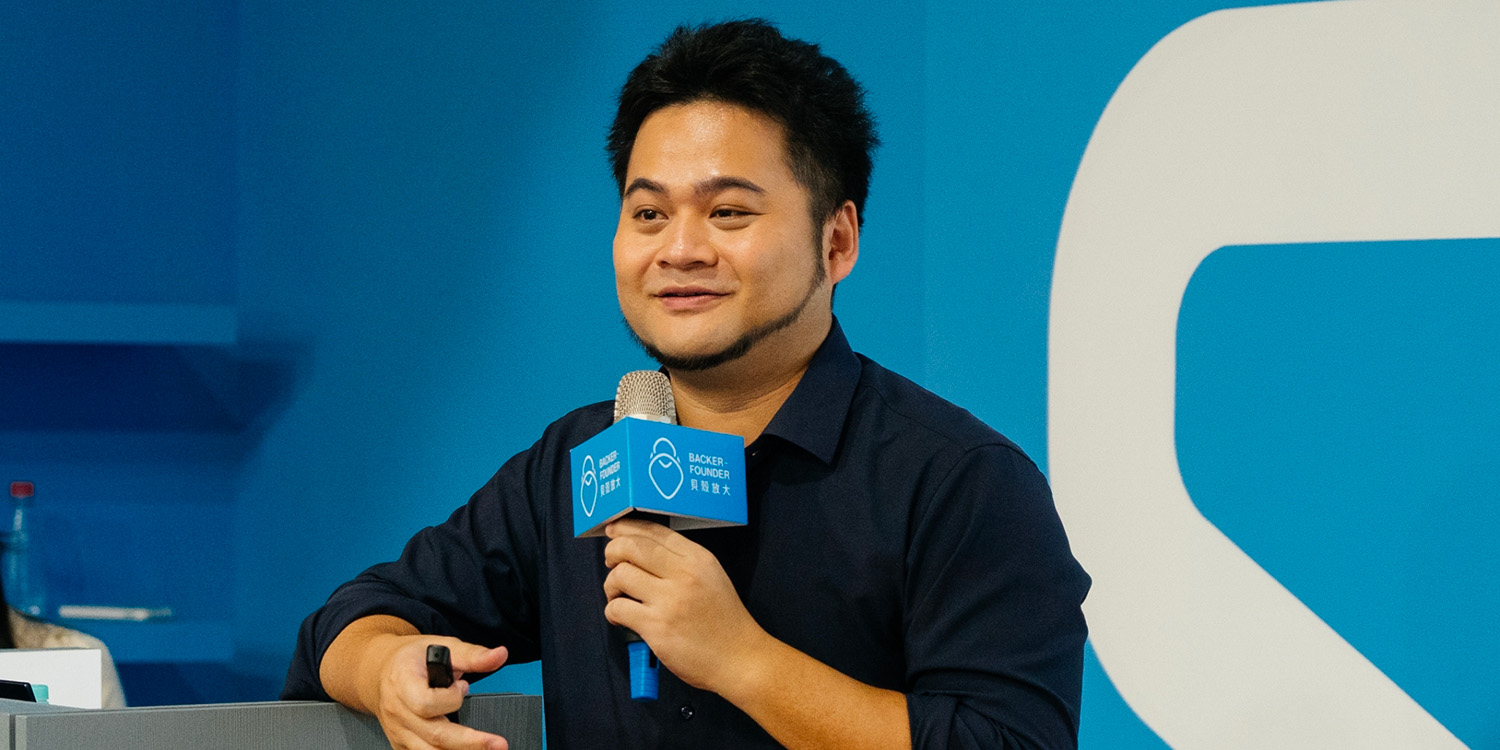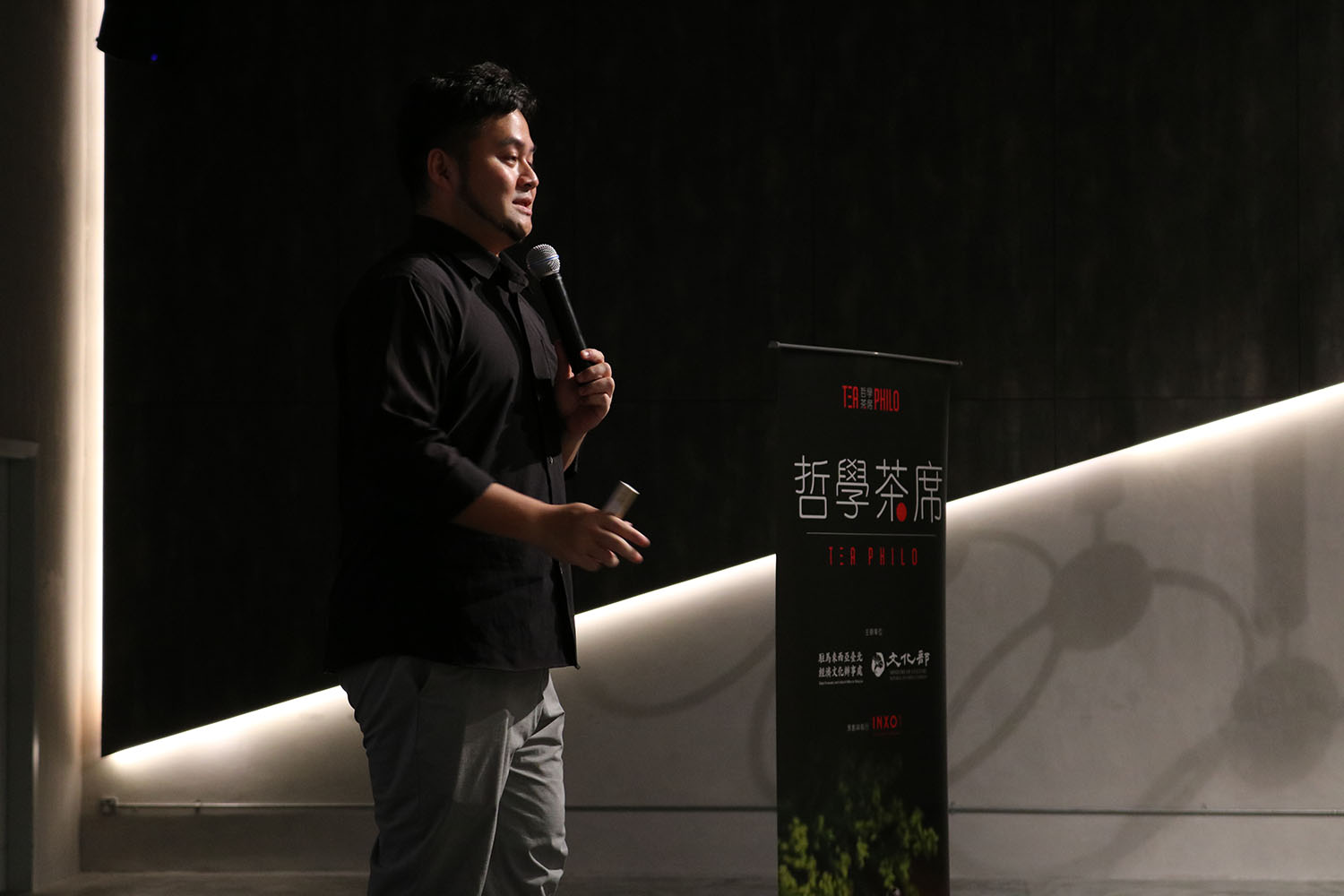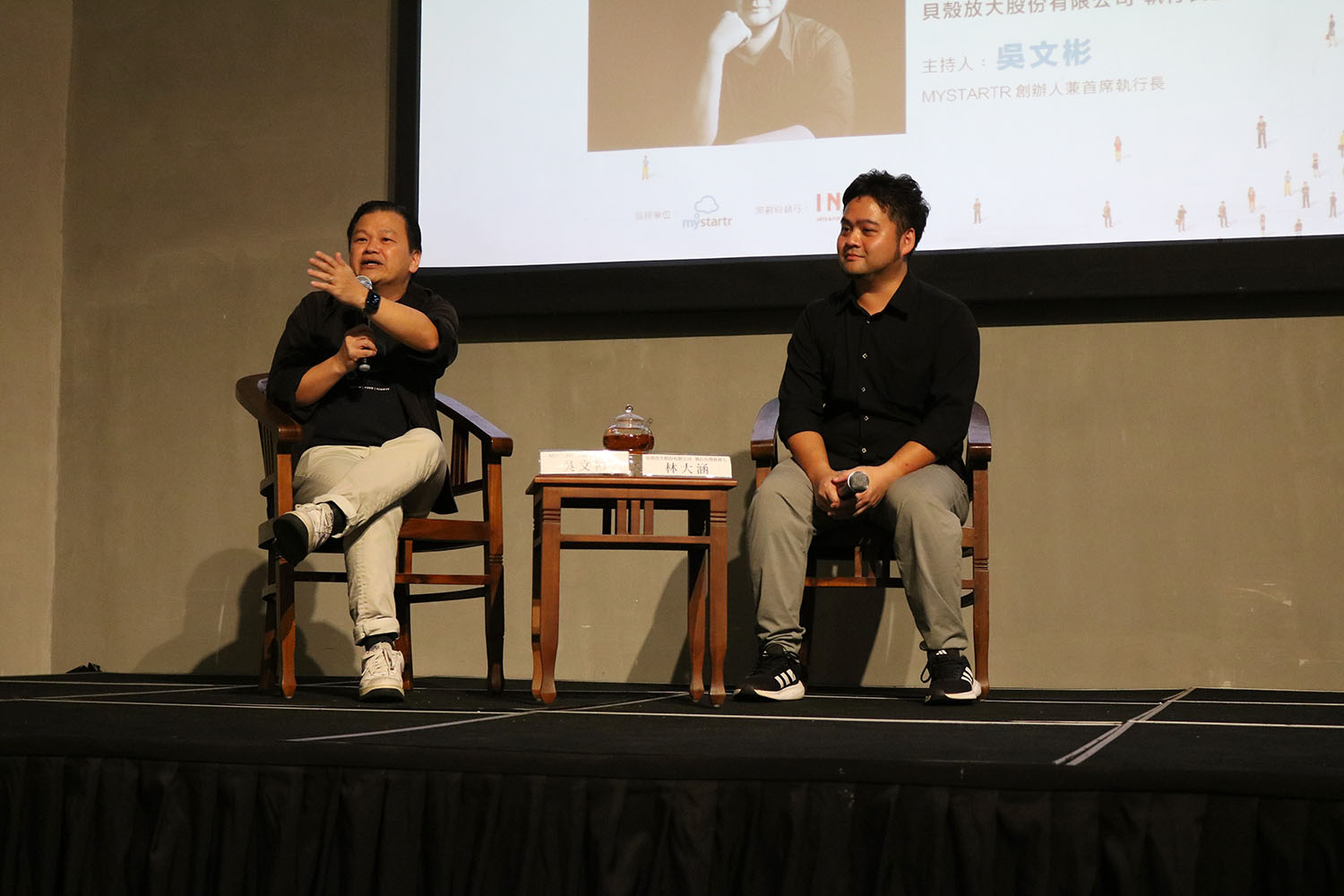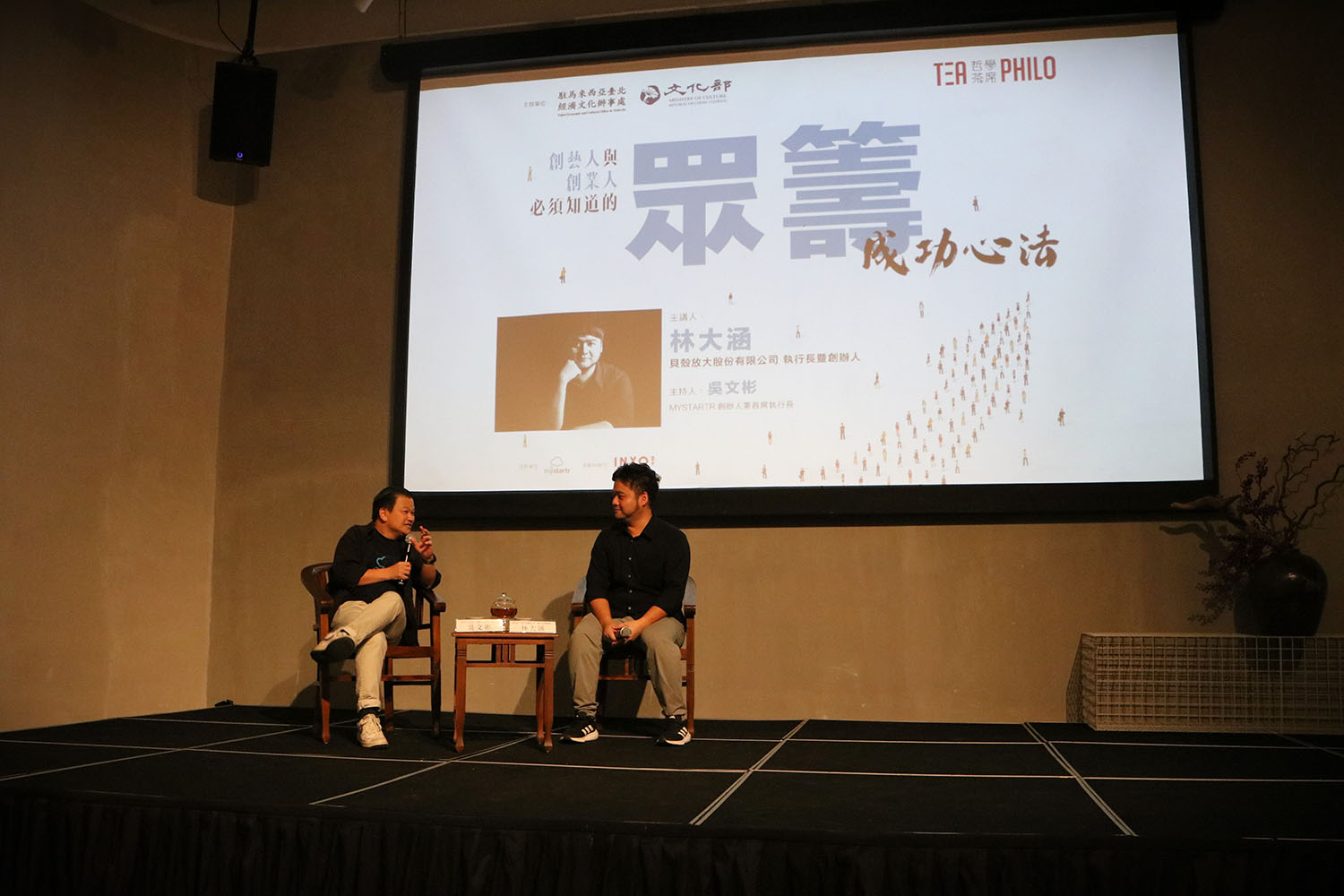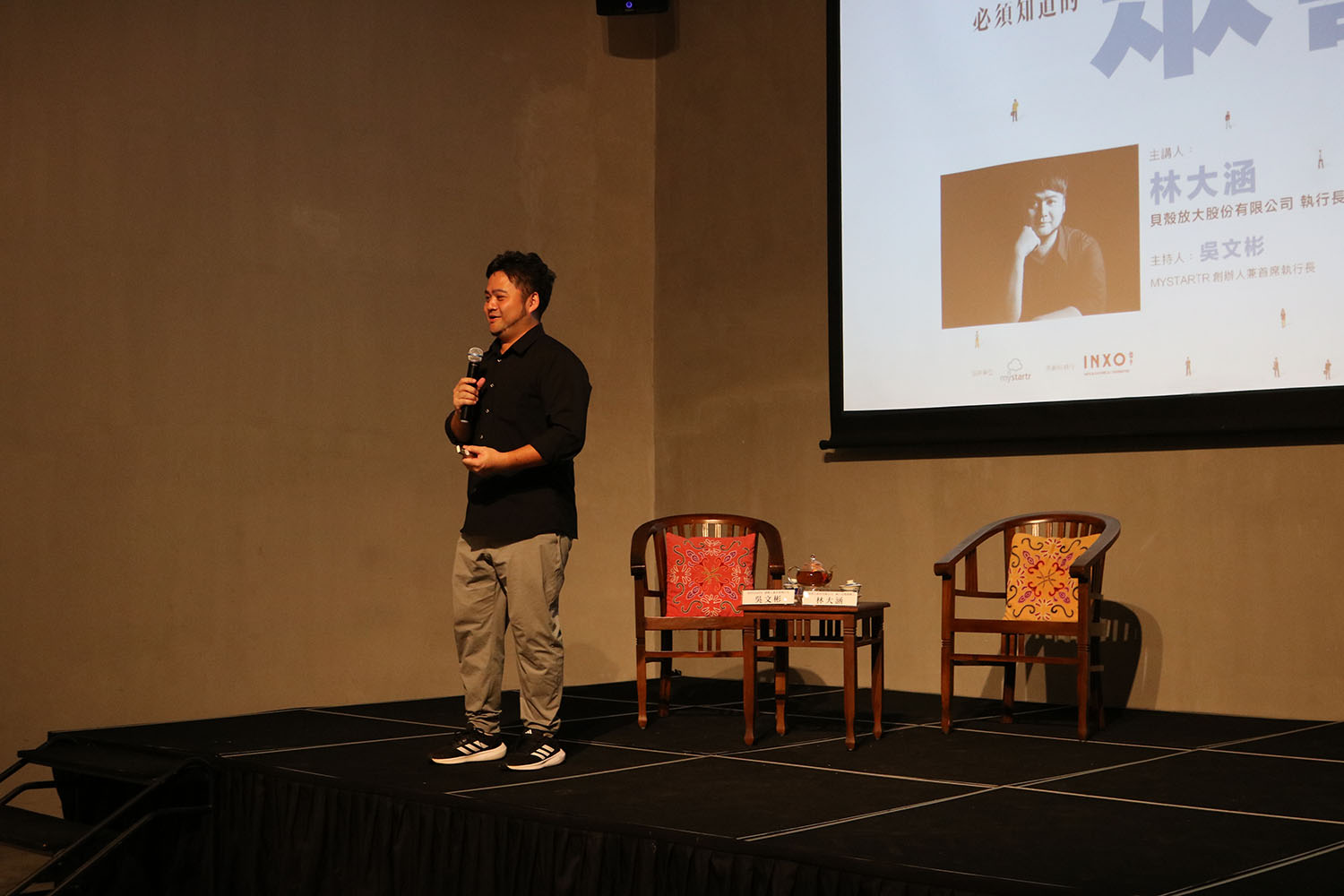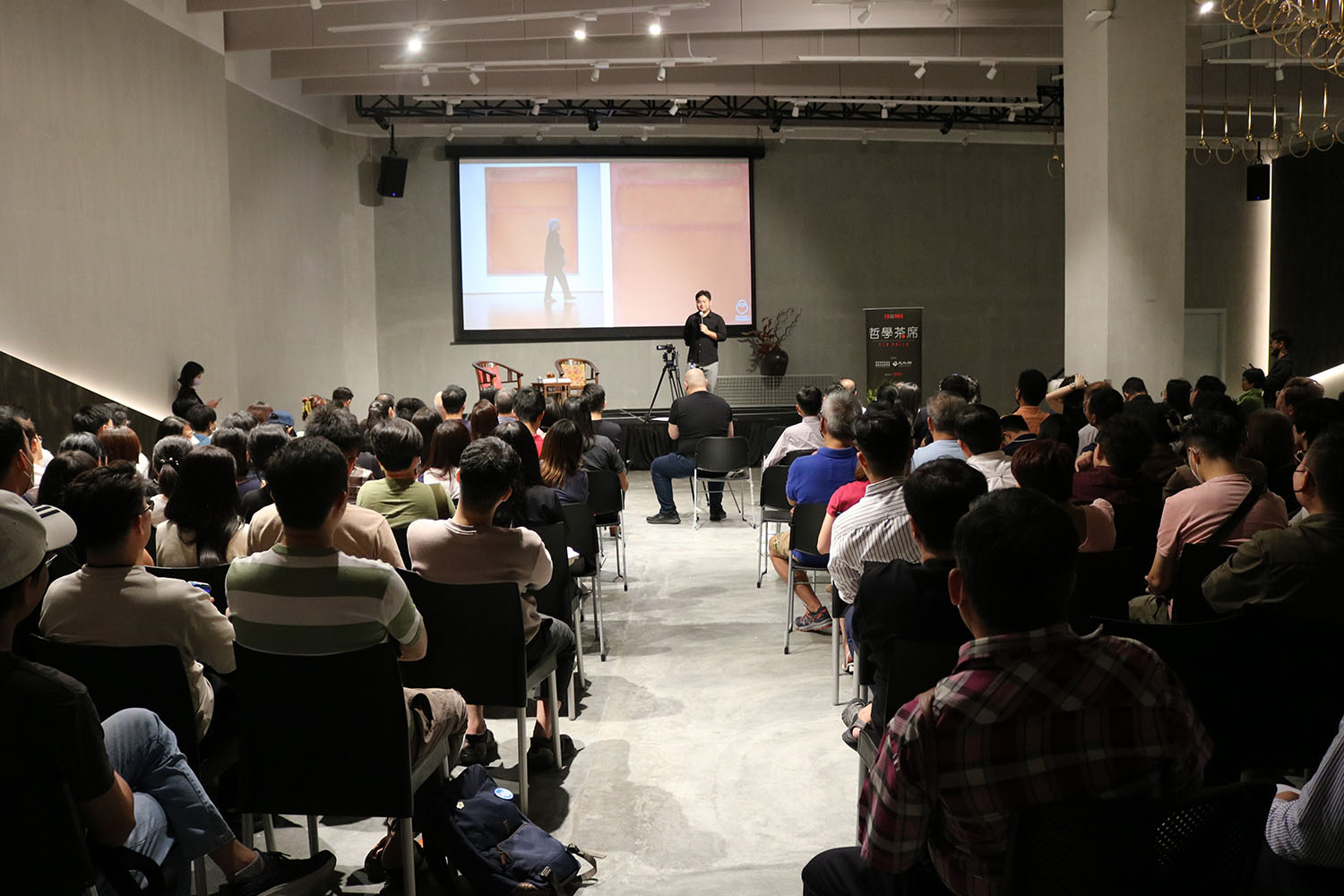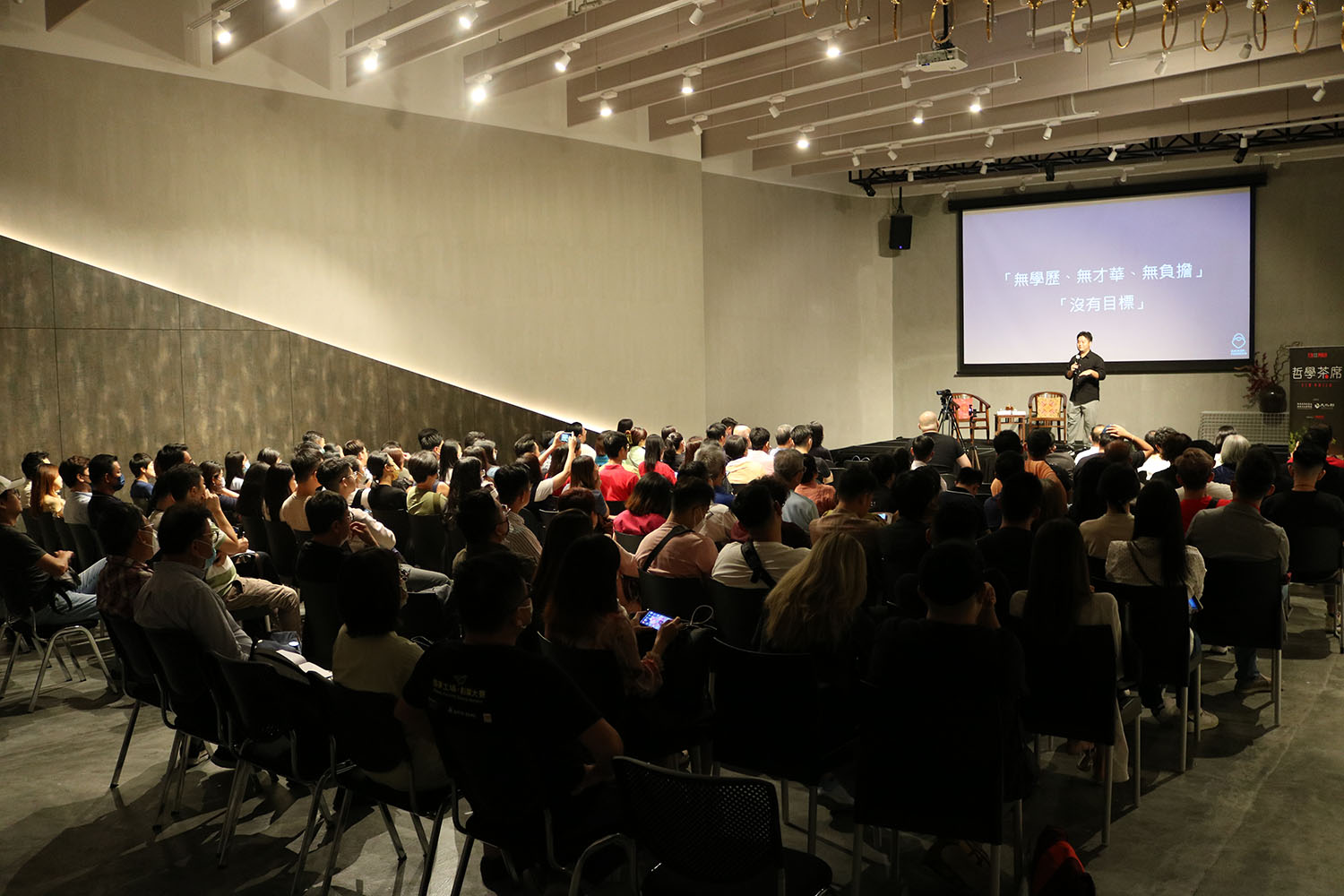Tea Philo 2023
The Key to Successful Crowdfunding: for Creatives and Startups
【Tea Philo】60
Date:11/05/2023 (Thur)
Time:8pm – 10pm
Venue:GMBB, The Grey Box, No.2, Jalan Robertson, Bukit Bintang, KL.
Backer-Founder CEO Tahan Lin Unveils the Key to Successful Crowdfunding for Creatives and Startups at the 60th Edition of Tea Philo
Organised by the Taipei Economic and Cultural Office in Malaysia and produced by the INXO Arts & Culture (L) Foundation, Tea Philo is a series of sharing sessions revolving around the discussion of philosophies and humanities. Luminaries from Taiwan are invited to share their experiences and engage with the Malaysian audience to encourage exchanges of ideas and experience. The 60th edition of Tea Philo made its long-awaited comeback to physical spaces after three years of being virtual due to the pandemic. Held at The Grey Box (GMBB KL) on 11th May 2023, Tea Philo 60 featured guest speaker Tahan Lin, the founder and CEO of Backer-Founder, Asia’s leading crowdfunding platform based in Taiwan. The sharing titled “The Key to Successful Crowdfunding: for Creatives and Startups” was conducted in Mandarin and moderated by Goh Boon Peng, the CEO and founder of MyStartr, one of Malaysia’s largest crowdfunding platforms.
Lin began by elaborating on the meaning behind the platform’s name in English (‘Backer-Founder’) as well as in Chinese (‘貝殼放大’). Fairly straightforward in English, ‘Backer’ refers to a project or an action’s supporter, and ‘Founder’ refers to the person initiating action. The important mission of the platform is akin to the dash (‘-’), connecting backers and founders. The platform’s Chinese name ‘貝殼放大’ (‘bèi ké fàng dà’, similar to ‘Backer-Founder’ in pronunciation) literally means ‘shells amplified’, adopting the imagery of shells, which were used as currency in ancient times, to state its second mission: to help founders generate more resources and amplify the impact of backers’ contributions.
Lin explained that the essence of crowdfunding lies in persuasion – to convince the public to support a project or dream that is not yet fully realised. “It is important to note that there is no guarantee of success for every project,” Lin emphasised, as he outlined three common types of crowdfunding failures: firstly, when the funding amount does not meet the target by the end of the project deadline, resulting in a refund to all backers; secondly, when the target amount is successfully hit, but promises made by the project founder are not fulfilled; thirdly, when funds are raised and the project is completed as planned, but no significant change or impact has been brought about, leading to the dissolution of the company or team. By this he did not mean to encourage founders to fail on purpose, but rather, to note that some failures could still yield meaningful results or lessons at a minimal cost and at an early stage, and that crowdfunding is a proven method that can help minimise the probability of failure.
Lin illustrated the pinnacle of crowdfunding in his opinion: “make those who like it pay, and make those who paid like it.” As simple as it sounds, it requires a professional, strong brand management team to achieve both parts of the statement. Most founders would find “making people who like it pay” more challenging, thus choosing to focus on the latter first, then generate the result of the former.
“Crowdfunding leverages the power of the crowd to give valuable projects a better chance of success,” Lin stated. Particularly, what kinds of projects are ready or suitable for crowdfunding? He listed three conditions that should be met before a crowdfunding campaign launches: a clear and verifiable goal, a specific requirement of resources, and a thought-out list of different rewards that can be provided to backers based on their support packages. These could also be used as indicators for backers or investors to evaluate a project before supporting.
Lin noted that for a project to succeed, it does not necessarily require the support of a general majority or even a large number of people; more often than not, “few but enough supporters” would suffice. “In most cases, crowdfunding is not about selling a product, but about providing the right backers with an answer they want to believe in,” he added.
Lin proposed four effective callings and corresponding strategy frameworks that can help founders gain support and resources through crowdfunding: “to realise a better version of myself”(utilising ‘AIDA’ model: Aware, Interest, Desire, Act), “to become a better and stronger ‘us’” (utilising public narrative story structure ‘SUN’: Self-Us-Now), “to help someone out there” (igniting empathy and positive peer sentiment), and “to thank the world that keeps bettering itself” (calling for one to contribute out of gratitude and appreciation for greater good).
Lin’s speaking style was lively and engaging, generating enthusiastic responses from the audience. He concluded the talk with a powerful statement, “Crowdfunding is about accomplishing things that are difficult to achieve. We are here because we believe that all the breakthroughs of today will become our departure point of tomorrow.”


